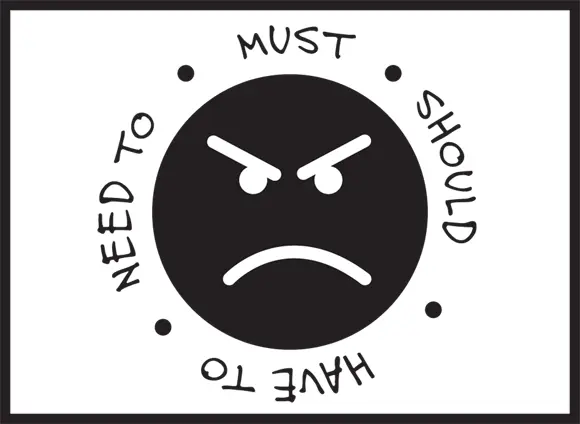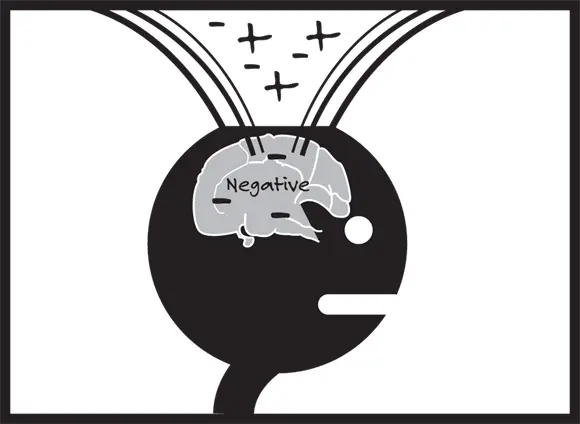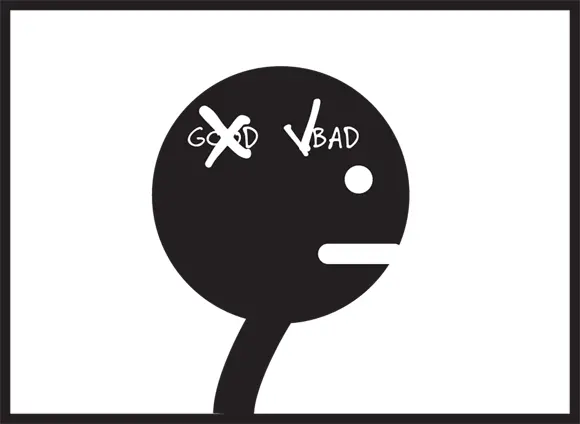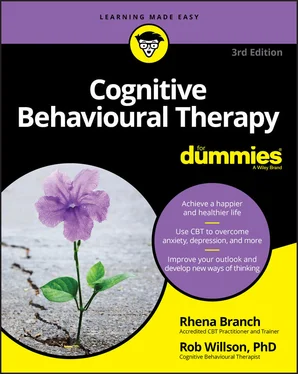1 ...8 9 10 12 13 14 ...22
Making Demands: Thinking Flexibly
Albert Ellis, founder of rational emotive behaviour therapy, one of the first cognitive-behavioural therapies, places demands at the very heart of emotional problems. Thoughts and beliefs that contain words like ‘must’, ‘should’, ‘need’, ‘ought’, ‘got to’ and ‘have to’ are often problematic because they’re extreme and rigid (see Figure 2-8).

© John Wiley & Sons, Inc.
FIGURE 2-8:Demands.
The inflexibility of the demands you place on yourself, the world around you and other people often means you don’t adapt to reality as well as you could. Consider these possible examples:
You believe that you must have the approval of your friends and colleagues. This leads you to feel anxious in many social situations and drives you to try to win everyone’s approval – possibly at great personal cost.
You think that because you try very hard to be kind and considerate to others, they really ought to be just as kind and considerate in return. Because your demand is not realistic – sadly, other people are governed by their own priorities – you often feel hurt about your friends (or even strangers) not acting the way you do yourself.
You believe that you absolutely should never let people down. Therefore, you rarely put your own welfare first. At work, you do more than your fair share because you don’t assert yourself, and so you often end up feeling stressed and depressed.
Holding flexible preferences about yourself, other people and the world in general is the healthy alternative to inflexible rules and demands. Rather than making demands on yourself, the world and others, try the following techniques:
Pay attention to language. Replace words like ‘must’, ‘need’ and ‘should’ with ‘prefer’, ‘wish’ and ‘want’.
Limit approval seeking. Can you manage to have a satisfying life even if you don’t get the approval of everyone you seek it from? Specifically, you’ll feel more confident in social situations if you recognise your preference for approval rather than viewing approval as a dire need.
Understand that the world doesn’t play to your rules. In fact, other people tend to have their own rulebooks. So, no matter how much you value considerate behaviour, your friends may not give it the same value. If you can give others the right to not live up to your standards, you’ll feel less hurt when they fail to do so.
Retain your standards, ideals and preferences and ditch your rigid demands about how you, others and the world ‘have to’ be. So keep acting consistently with how you would like things to be rather than becoming depressed or irate about things not being the way you believe they must be.
 When you hold rigid demands about the way things ‘have got to be’, you have no margin for deviation or error. You leave yourself vulnerable to experiencing exaggerated emotional disturbance when things in life just don’t go your way.
When you hold rigid demands about the way things ‘have got to be’, you have no margin for deviation or error. You leave yourself vulnerable to experiencing exaggerated emotional disturbance when things in life just don’t go your way.
Mental Filtering: Keeping an Open Mind
Mental filtering is a bias in the way you process information, in which you acknowledge only information that fits with a belief you hold. The process is much like a filter on a camera lens that allows in only certain kinds of light. Information that doesn’t fit tends to be ignored. If you think any of the following, you’re making the ‘mental filtering’ thinking error:
You believe you’re a failure, so you tend to focus on your mistakes at work and overlook successes and achievements. At the end of the week, you often feel disappointed about your lack of achievement – but this is probably largely the result of you not paying attention to your successes.
You believe you’re unlikeable and really notice each time your friend is late to call back or seems too busy to see you. You tend to disregard the ways in which people act warmly towards you, thus sustaining your view that you’re unlikeable.
To combat mental filtering, look more closely at situations you feel down about. Deliberately collecting evidence that contradicts your negative thoughts can help you to correct your information-processing bias. Try the following:
Examine your filters closely. For example, are you sifting your achievements through an ‘I’m a failure’ filter? If so, then only failure-related information gets through. If you look for a friend’s achievements over the same week without a filter, you’re likely to find him in far greater possession of success. So drop the filter when assessing yourself in the same way you do when looking at your friends’ achievements.
Gather evidence. Imagine you’re collecting evidence for a court case to prove that your negative thought isn’t true. What evidence do you cite? Would, for example, an assertion that you’re unlikeable stand up in court against the proof of your friends behaving warmly towards you?
 If you only ever take in information that fits with your negative thinking, you can very easily end up reinforcing undesirable thinking habits. The fact that you don’t see the positive stuff about yourself, or your experiences, doesn’t mean it isn’t there (just bear in mind Figure 2-9!).
If you only ever take in information that fits with your negative thinking, you can very easily end up reinforcing undesirable thinking habits. The fact that you don’t see the positive stuff about yourself, or your experiences, doesn’t mean it isn’t there (just bear in mind Figure 2-9!).

© John Wiley & Sons, Inc.
FIGURE 2-9:Mental filtering.
Disqualifying the Positive: Keeping the Baby and Throwing Out the Bathwater
Disqualifying the positive (see Figure 2-10) is related to the biased way that people can process information. Disqualifying the positive is a mental response to a positive event that transforms it into a neutral or negative event.

© John Wiley & Sons, Inc.
FIGURE 2-10:Disqualifying the positive.
The following are examples of disqualifying the positive:
You convince yourself that you’re worthless and unlovable. You respond to a work promotion by thinking, ‘This doesn’t count, because anyone could get this sort of thing.’ The result: Instead of feeling pleased, you feel quite disappointed.
You think you’re pathetic and feel low. A friend tells you you’re a very good friend, but you disqualify this in your mind by thinking, ‘She’s only saying that because she feels sorry for me. I really am pathetic.’
Hone your skills for accepting compliments and acknowledging your good points. You can try the following strategies to improve your skills:
Become aware of your responses to positive ‘data’. Practise acknowledging and accepting positive feedback and acknowledging good points about yourself, others and the world. For example, you could override your workplace disappointment by recognising that you’re the one who got the promotion. You can even consider that the promotion may well have been a result of your hard work.
Practise accepting a compliment graciously with a simple thank you. Rejecting a sincerely delivered compliment is rather like turning down a gift. Steer your thinking towards taking in positive experiences. When others point out attributes you have, start deliberately making a note of those good points. Even if your current thinking bias leads you to doubt the validity of a compliment or good experience, try considering that you may well be wrong to do so. Trust what others say for a change!
Читать дальше


 When you hold rigid demands about the way things ‘have got to be’, you have no margin for deviation or error. You leave yourself vulnerable to experiencing exaggerated emotional disturbance when things in life just don’t go your way.
When you hold rigid demands about the way things ‘have got to be’, you have no margin for deviation or error. You leave yourself vulnerable to experiencing exaggerated emotional disturbance when things in life just don’t go your way.












